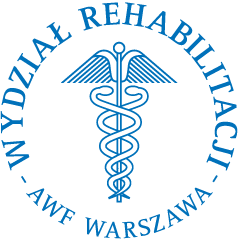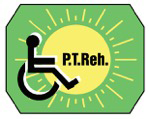


|
Current issue
Archive
Manuscripts accepted
About the journal
Editorial board
Reviewers
Abstracting and indexing
Contact
Instructions for authors
Publication charge
Ethical standards and procedures
Editorial System
Submit your Manuscript
|
4/2023
vol. 37 abstract:
Original article
Barriers, facilitators and impact of the COVID-19 pandemic on the physiotherapy intervention for people with dementia or cognitive impairment
Marlene Rosa
1
,
Maria Conceição Graça
2, 3
,
Marta Duarte
2, 4
,
Natália Martins
1, 2
,
Lavínia Sanches
4
,
Elsa Silva
5
,
Luís Eva Ferreira
6
,
Adérito Seixas
7
Advances in Rehabilitation, 2023, 37(4), 41–50
Online publish date: 2023/12/20
View
full text
Get citation
ENW EndNote
BIB JabRef, Mendeley
RIS Papers, Reference Manager, RefWorks, Zotero
AMA
APA
Chicago
Harvard
MLA
Vancouver
Introduction
The mitigation measures during the COVID-19 pandemic contributed to a very limited activity of rehabilitation services in adults with cognitive decline and dementia. This study aimed to characterize the barriers, facilitators, and impact of the COVID-19 pandemic on the rehabilitation process of people with dementia or cognitive impairment. Material and methods An online survey, directed to physiotherapists working in mental health, collected data on professional and training experience of the physiotherapists, about the population with dementia or cognitive impairment, and on the barriers and facilitators in accessing/obtaining results in physiotherapy in the pandemic period. Results Sixty-three physiotherapists participated in this study. Three main barriers in accessing or obtaining good results in the rehabilitation process of these people were (i) Interruption of rehabilitation processes/restricted access to specialized monitoring in situations of prophylactic isolation; (ii) Break in the routine of the person with dementia and caregiver; (iii) Disruption of social interaction (isolation, distancing from their social networks). Regarding facilitators, the most important were (i) greater proximity between people with dementia and their caregiver/family, (ii) intervention in the natural context of the person with dementia, and (iii) greater proximity to the caregiver and the person with dementia by professionals. Conclusions Barriers and facilitators identified in this study are crucial for physiotherapy interventions in different critical contexts (e.g., social restriction/ seasonal variations), having an impact on the healthy lifestyle of people with dementia, including physical activity promotion. keywords:
Cognitive dysfunction, COVID-19, Dementia, Mental health, Rehabilitation |
    |